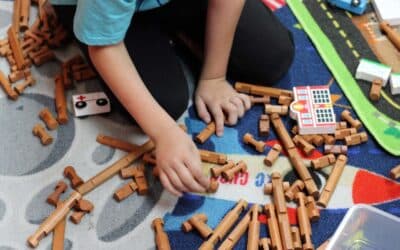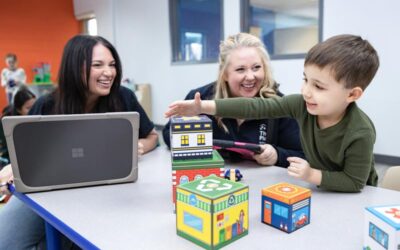It can be scary to think about the wellbeing of our children once we as the parents are no longer here. This can be especially intimidating if you are the parent of a child with autism or various special needs. Although no parent wants to think about leaving their child behind, it is especially important to make sure your child is equipped with the skills necessary to live an independent and fulfilled life and to begin targeting these skills at an early age. Applied Behavior Analysis (ABA) therapy, the gold standard treatment of autism, will greatly help to target these skills from childhood into adulthood.
How ABA Helps Young Children
ABA therapy is most effective when started at a young age. For a young child with autism, ABA therapy will likely target communication, social skills, independence and decreasing challenging behaviors.
Preparing a young child to grow into an independent adult starts when children are very young. Starting at ages 2 – 6 years old, ABA therapy will work on building fundamental skills to help children communicate their wants and needs, cooperate with others, form social bonds, and overcome challenging behaviors. It will also teach independent living skills like using the toilet, brushing teeth, and handwashing. Developing these basic skills at an early age sets the foundation to increase higher-level skills throughout childhood, adolescence, and adulthood.
The earlier a child can access critical interventions such as ABA therapy, the better the prognosis. If you are located in Illinois and considering treatment options for your child with autism, contact us today to learn more about how we can help.
How ABA Helps Teens
As children begin to grow into their teenage and young adult years, ABA therapy will still target communication, social and independent living skills, although the type of skills targeted may change. For example, a young child may master communication such as requesting and labeling, but as they get older, they may need to learn how to read, write, and shift conversational topics. As a child ages, ABA may focus on increasing more complex social skills like identifying social cues, engaging in leisure activities, and interacting with larger groups of individuals. Teenagers will also need to learn more complex independent living skills like cooking simple meals, making their bed, and showering.
As a child ages, ABA therapy begins to focus more on increasing self-confidence, identifying unique interests, building significant relationships, and self-advocacy. During their teenage years, individuals will benefit from engaging in sports, art, dance, or other social activities. ABA therapy helps provide teenagers with the skills they need to access their potential, form their unique identities, and get the most out of life.
How ABA Helps Adults
Even adults can benefit from ABA therapy! As adults with autism, there may still be some skills that need to be shaped and taught. For example, ABA therapy might teach an individual to ride public transportation, manage job responsibilities, cook and clean for themselves, and find social groups in the community. We want our loved ones with autism to be part of their communities and have a web of close friends and support systems.
The goal throughout ABA therapy, regardless of a child’s age, is to prepare them for an independent life as they grow older, where reliance on parental support decreases over time. The best path to an independent adulthood begins in early childhood. For individuals with autism, ABA therapy provided by trained clinicians can begin targeting vital skills starting at ages 2 – 6. If you need support, please contact The Place to get started.



